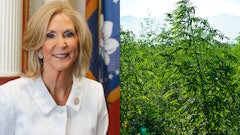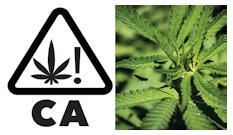Charlotte’s Web Holdings, Inc., announced plans to acquire Abacus Health Products, Inc., to create the world’s largest vertically integrated hemp-derived cannabidiol (CBD) company.
The combined entity is expected to represent nearly 35% of U.S. sales within the food/drug/mass channel.
The deal will expand Charlotte’s Web portfolio in topicals, which are forecasted to become the fastest growing and largest CBD segment by 2021, according to the Brightfield Group.
Related: Who Consumes CBD: A Breakdown of Generations, Genders and Socioeconomics
Founded in 2014, Abacus specializes in over-the-counter topical pain relief and therapeutic skincare products that combine active pharmaceutical and natural ingredients, including a cannabinoid-rich hemp extract containing CBD. Abacus’ product line includes CBD Clinic, which focuses on the professional practitioner market; CBDMEDIC, which focuses on the consumer market; and Harmony Hemp, which focuses on personal care and beauty segment.
As a result of the acquisition, the companies will have more than 15,000 unique doors combined to sell their cannabidiol (CBD) topical and ingestible products.
"The complementary strengths of our relative market positions made this merger a logical strategic move," said Deanie Elsner, chief executive officer of Charlotte's Web, in a press release. "With this acquisition, we strengthen the business to reflect the evolution of the category. Because most of Abacus's products are positioned in adjacent categories, our combined distribution reach has limited shelf overlap. Together we are the most developed CBD company across every channel and segment and positioned to accelerate our growth and extend our market share. Furthermore, it enables us to drive more scale production through our vertically integrated infrastructure."
The acquisition precedes Charlotte Web’s 2019 year-end investor presentation March 24 and follows an announcement that it would launch a new R&D division, CW Labs.
The transaction is expected to be completed in the second quarter of 2020, subject to receipt of all regulatory, court, shareholder and other approvals.

























